After the 2018 elections and the incoming tide of the Pakistan Tehreek-e-Insaaf (PTI) government in the subsequent months, there was a proliferation of what you could call car hysteria. To be fair, there were all kinds of hysterias in this time, and cars were not even the most notable of these hysterias.
But it happened. The Facebook groups sounded the alarm bells, the car forums went up rioting, and the message was clear: buy your cars now because you will not be able to afford them soon enough.
For once, it was not senseless hysteria, and it was not even a case of hysteria induced buying and selling driving prices up and down. Taxes were implemented, the import of used Japanese cars was blocked, Honda Atlas and Toyota Indus had to halt production, prices shot up and sales came to a grinding halt.
Cars had become expensive. To be fair, cars are an expensive commodity everywhere, but in Pakistan they have always been more expensive than usual compared to other countries like China or India. Most of this, of course, has to do with the barely present infrastructure of car manufacturing in Pakistan and the dependence on imports.
It is a bit of a double-whammy for those in the market for cars. A car is much more than just a vehicle for travel – it is an indicator of social status, wealth, power and a great topic of conversation. [Editor’s note: It is a topic of conversation, yes. Whether it is a great one is highly debatable.] A marker of having ‘made it’ for the middle class is being able to upgrade from your WagonR or Cultus to a Toyota Corolla GLI or a Honda City.
But why exactly are these cars so expensive? And with taxes rising, used Japanese cars no longer arriving, can you really hope to buy a new car any time soon, or will you be forced into the shame of looking on the used local car market? Profit takes a look.
Where to begin …
If you think this piece is going to be about taxes and how they have risen, you would be absolutely right. The numbers have been neatly laid out in front of you, taxes are high, manufacturers and in disarray and prices have nearly doubled.
A total of 60,862 cars were produced and 59,097 sold in Pakistan during the six months of the current fiscal year ending June 30, 2020. Compare that to last year, when during the same period during fiscal year 2019, 113,494 cars were produced and 104,038 were sold. The numbers are in: the number of cars sold in Pakistan was nearly halved, and the only question is whether the taxes that led us here make sense, and what your options are.
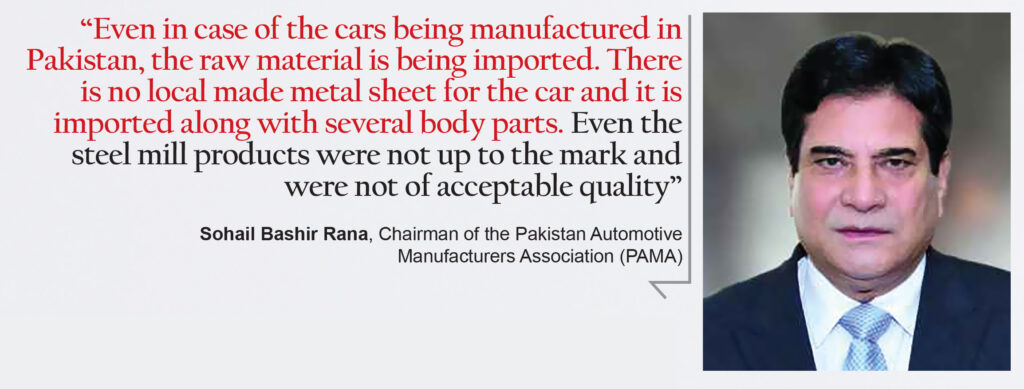
For starters, Pakistan is not manufacturing cars like India or other countries. While cars may be assembled here, most of their parts have to be imported and with the government’s initial anti-import stance, there was little else one could have expected than the situation we have now.
Another reason is what a long process car manufacturing is in Pakistan. As if the Ford revolution and assembly lines had changed nothing, a car passes through so many channels before reaching a dealer in any city of Pakistan that it has had a pretty penny spent on it. With each hand the car passes through, the price continues to rise steadily.
“There are too many taxes in Pakistan,” says Sohail Bashir Rana, the chairman of the Pakistan Automotive Manufacturers Association (PAMA). It is no surprise, the chairman of a business association claiming taxes are too high. But as things stand, there may be a point here somewhere.
“There are import duties and taxes on raw materials, sure, but there have been so many additional taxes since last year. Then there is the disaster withholding tax in which some are adjustable and some non-adjustable. There is an evaluation on import which increases the cost” he continues. It is hard to imagine someone so passionate about taxes. But when it has to do with business slowing down, there is an activist in every chairman and executive.
“When we come to the local industry, the raw material and parts are expensive due to the dollar rising. Federal excise duty is imposed on the finished products, then that is followed by sales tax which makes the overall price high,” he continues to rant and rave.
The concept he is arguing is simple enough, when all these taxes are added up, the math is scary, and the dealer does not stand to get much out of selling these vehicles, since most of it is going down the final income tax drain.
“Add to this things like workers welfare funds and workers participation fund and God knows what other taxes that are imposed, and the result is higher prices of cars. The end result is people not buying cars, and for the few that do get sold, the net profit is very minimal for the company or manufacturer or seller” ends Rana.
Another reason cars are so pricey are the premiums, those infamous ‘ons’ that anyone who has been in the market for a car knows too well about. As you will know, unlike the movies, there is no big car dealership with suave salesman offering you all kinds of cars of all prices and conditions for sale. For starters, car dealers usually just sell a single brand, and if you do decide to buy one, you will not be driving away in your new ride, but will patiently sit on your paperwork for a few months before you can pick your car up. So if you want a car immediately, you will have to pay significantly more in the form of premiums.
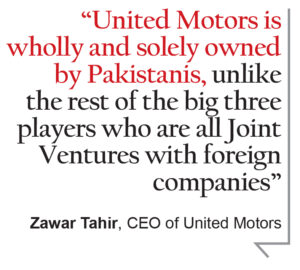
Another leading car agent, Murtaza Qazi, told Profit that one main factor in the price hike of the new cars is that the dealers get premiums over cars being booked by the buyers. “Dealers raise the price by adding premium amount to the cost. The buyers are given an option that if they wish to get the car right away rather than waiting for the booking period, then they can pay an amount over the cost of the car and the dealer would get it for them. This ends up increasing the total cost of the car”, he explains.
Is second hand an option?
Given the bleak situation, one might think that the only option is to buy a used car, to bite that bullet, swallow all the apprehensions that come with a second hand purchase and go for it. What other option is there. If you ask Murtaza Qazi, that still may not be the best idea, since there is no set standard of quoting prices of used cars in Pakistan, and there may be a greater risk of a bad deal being struck.
“One factor is the dealers themselves, who give arbitrary prices and raise the prices of those cars that will give them the most profit. That results in the particular model becoming desirable and expensive on the second hand market” he said.
“The the dealers also have their own commission, which is not just an expense, but a cutthroat business. Then you also have this new trend of selling cars on websites and directly buyer to seller. This makes the price and testing completely random unless someone has a trained eye – which most people do not” he goes on to say. “People put up such high prices of used cars that the buyers get confused between choosing a new or a used car. However, with the proliferation of Uber and Careem, the demand for used cars has increased in the market. People are buying used cars and putting them up on Uber and Careem services.”
But as Sohail Bashir Rana, the chairman of the PAMA explains, there is always a catch, and as with all good catches, it is deceptively simple: if the prices of new cars go up, then those same models will be worth more second hand. Does it just become a po-tay-toe po-ta-toe situation then? “The price of used cars is adjusted according to the price of a new car. “If the price of Honda goes up to 4 million then the used would also be higher in price.”
Can Pakistani cars be cost effective?
The answer to how cars in Pakistan can be cheaper is an easy one to give, but a difficult one to pull off. If you start making parts and metal sheets locally, the prices will fall drastically. But who will produce those things? According to Tajamul Ashfaq, a dealer frustrated with the state of the automobile industry, the government needs to aid and support such endeavours and in fact, actively subsidise them.
“If we follow the Chinese model or even the example of India or any other country, the cars manufactured there are stamped by the country’s name. Whereas in Pakistan, anything that has a made in Pakistan stamp on it is automatically looked at with suspicion” he says. “We need a thriving industry that our consumers can not only trust, but take pride in.”
Unfortunately, attempts at pulling something like this off have not been particularly successful. Tajamul points towards United Bravo, a relatively affordable car that has not done too well on the market because it’s Pakistani manufacturing has people questioning its quality.
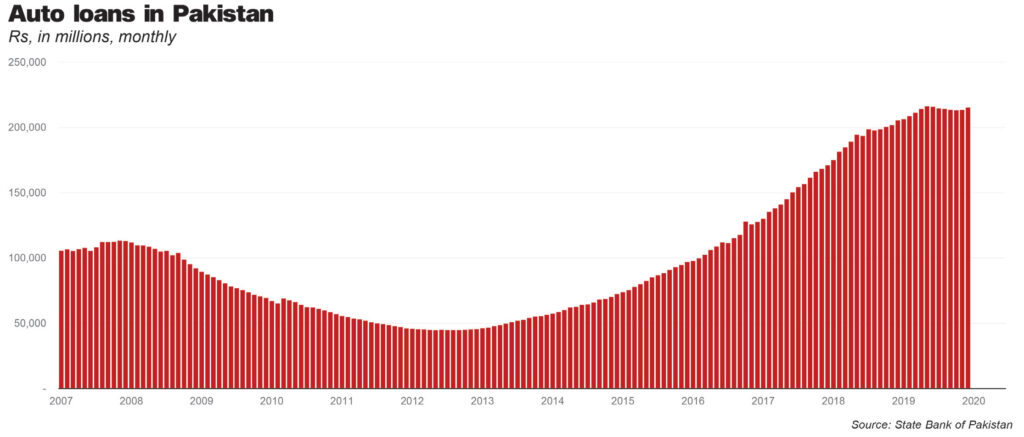
“The car is not getting popular firstly because it is locally made, and secondly because it is cheap. The general mindset of buyers here in Pakistan is that these are the two things to stay away from, even though they should be desirable qualities.”
“Obviously there is a marked difference in Pakistan made cars or assembled ones” says Sohail Bashir Rana, the PAMA chairman. “For example, a tractor is manufactured with nearly 90 percent of its parts locally assembled, therefore there is stability in its price. Even when there is any fluctuation in the price, it is affordable. In the case of cars, 40 to 50 percent of a vehicle’s parts are manufactured in Pakistan, with some cars having even lower numbers on this front.”
“Even in case of the cars being manufactured in Pakistan, the raw material is being imported. There is no local made metal sheet for the car and it is imported along with several body parts. Even the steel mill products were not up to the mark and were not of acceptable quality” he went on.
“Body parts are being manufactured in Pakistan by Honda, Suzuki and Toyota. Seats, tyres, bumpers, rims, wind screen, glasses are also being manufactured in Pakistan. Engine and suspension parts, however, are not made here. Suzuki is the only company doing a little better on this front.”
The Japanese question
There is a saying in car dealers, that if you buy a refurbished Japanese car, you will not be able to go back to locally assembled cars. Japanese cars were all the rage in Pakistan, it started with a few Toyota Vitzs on the road and ended up being an automobile revolution. Not only were hybrid cars ushered in to Pakistan, but fully loaded cars with great mileage were suddenly affordable and available to buy in a moment – American showroom style. And then, they were gone just as quickly when the government cut off imports.
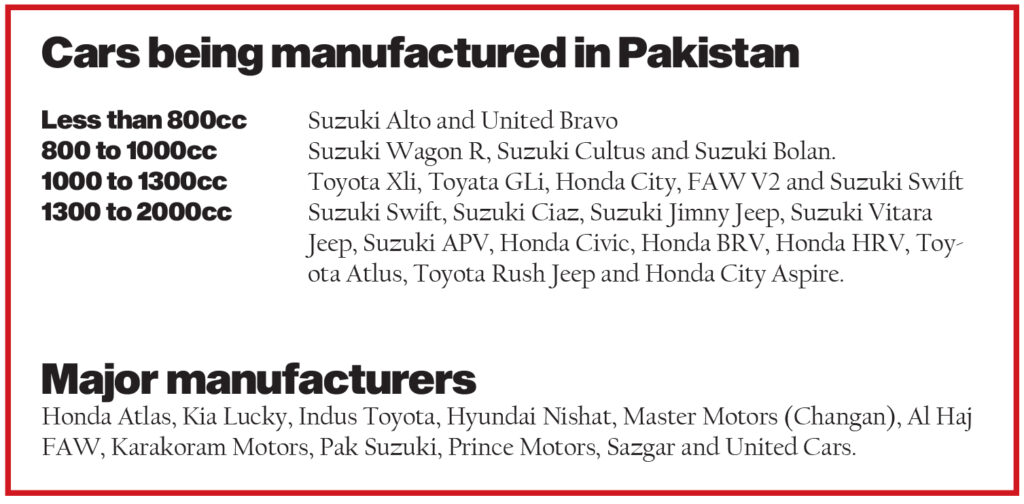
“If you compare Suzuki’s new, locally assembled Alto, which has been built on the Japanese model, with the Japanese version of the same car, it is miles ahead. It has airbags, more accessories, better mileage and this is all despite the fact that it has been driven all over Japan before coming to Pakistan,” says one consumer.
However, in the opinion of Sohail Bashir, the key is quality and fittings. “There are a lot of accessories in imported cars like air bags, push start ignition, power windows, central locking system, intermittent wipers and many others at to the value of the imported cars and thus people think they are better in quality and also these features affect the cost of a car” he says.
“There are not many accessories in local cars. These accessories can easily be included in the locally manufactured cars, but once again, that drives up the price. There is a specific category of consumers who wish to have such accessories but otherwise the masses want to have an economical car.”
Because of this, and because it was threatening their business, PAMA holds a strong anti-Japanese imported cars stance. “We do not encourage imported cars. Only the assembling plants cost 200-250 million dollars and a vendor industry is set up simultaneously with it and these are the most important things in setting up a car plant” said their chairman.
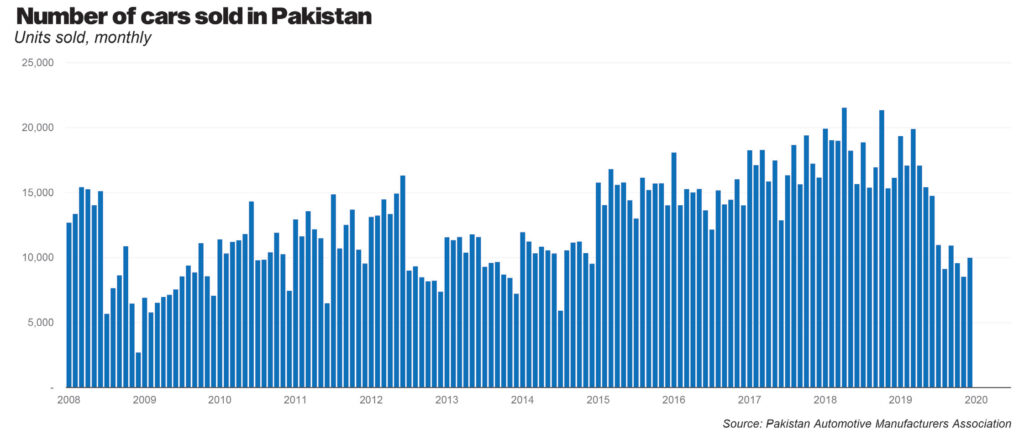
“For example, Hyundai and KIA are setting up plants here and have made a huge investment which needs to be protected so others will be encouraged to enter. Also, imported cars are largely second hand cars which have devalued due to depreciation, and when these are brought in Pakistan and given preference over first hand Pakistan assembled cars, it is unfair” he claims. “Even importers ask for subsidies over such cars. With huge investments made by companies in Pakistan, we should encourage them rather than encouraging the import of second hand cars.”
Then what do they suggest?
What does PAMA and its chairman propose be done about it? For starters, their demand is, surprise surprise, a cut in taxes. But just because the demand may be self serving does not mean it is wrong. “The government has this idea that if you can afford a car, you can pay taxes, but that is not how it works. Everyone wants a car because it means a lot more than just a means of transport” he says.
“Cars like Honda, which were going for Rs 2.2 million, are now selling for basically Rs 4 million, and this is all because of the taxes. With such prices, the clientele will continue to shrink. And if the government is thinking that it will increase revenue with taxes, they need to remember that the net income will also fall.”
However, staying true to form, the CEO of United Motors, Zawar Tahir, seemed confident in the future for his company, saying that this situation would give United the edge to produce cars at comparatively much lower prices. “As is evident by newly launched Suzuki Alto 660CC, being smaller in engine size and lesser in options, car strength and there is a price difference of 4 to 4.5 lakhs’ he told Profit. “People who have physically witnessed the difference end up completely satisfied. The current target market of United Motors is the middle class which wants a good quality car at an affordable price.”
He said that the ethos of his company kept the cars at the lowest possible price, and that people need to understand that taxes (both direct and indirect) take up almost 40% of car price. “We are thankful to the new EDB policy of 2016-2021 for promoting the industry and encouraging competition in the market while creating more choices for the customers.”
Are the cars any good?
The problem, at the end of the day, is what car will serve the consumer best. On that front, the Chinese companies vying to take up space in the market have an image problem. The PAMA chairman tells us that they lack credibility compared to Japanese and Korean products.
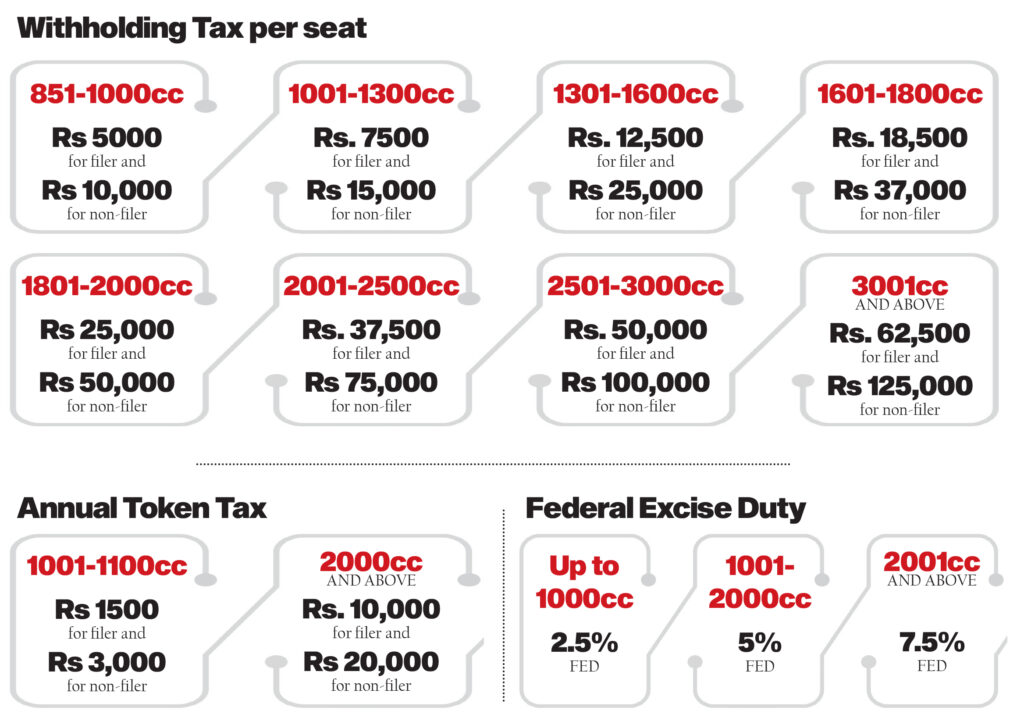
“China lags behind in R&D (Research and Development), while Japan is way ahead. So the quality aspect becomes questionable as some plants in Pakistan are in joint venture (JV) with Chinese companies. Brand equity is definitely an edge for the already established companies, and competing with them is difficult. Lesser known brands cannot compete with Honda, KIA etc, and preference would surely be given to the bigger brands.”
United Motors, on the other hand, who are still not a part of PAMA, are the only ones that seem satisfied with the opportunities that are presenting themselves to them. “United Motors is wholly and solely owned by Pakistanis, unlike the rest of the big three players who are all Joint Ventures with foreign companies” their CEO tells us. “These Joint Ventures mean both Pakistanis and international parties are owners, hence the revenue distribution is divided as per the ownership rights” he explains.
“United Motors, being the 1st local car assembler, retains all revenue within the country. Any new car launched takes its time to address the small issues encountered in first 5 to 6 hundred vehicles until the plant smoothens things out. However, we have gone through this phase in record time.”
According to him, United has managed to get roughly 2500 units on the road within one year, which seemingly is a very high achievement. The watch and hold phase seems to be coming to an end, and apparently without any significant complaints. But whether the consumers take the final leap and trust local manufacturers, or force the government to go back to the drawing board is yet to be seen.



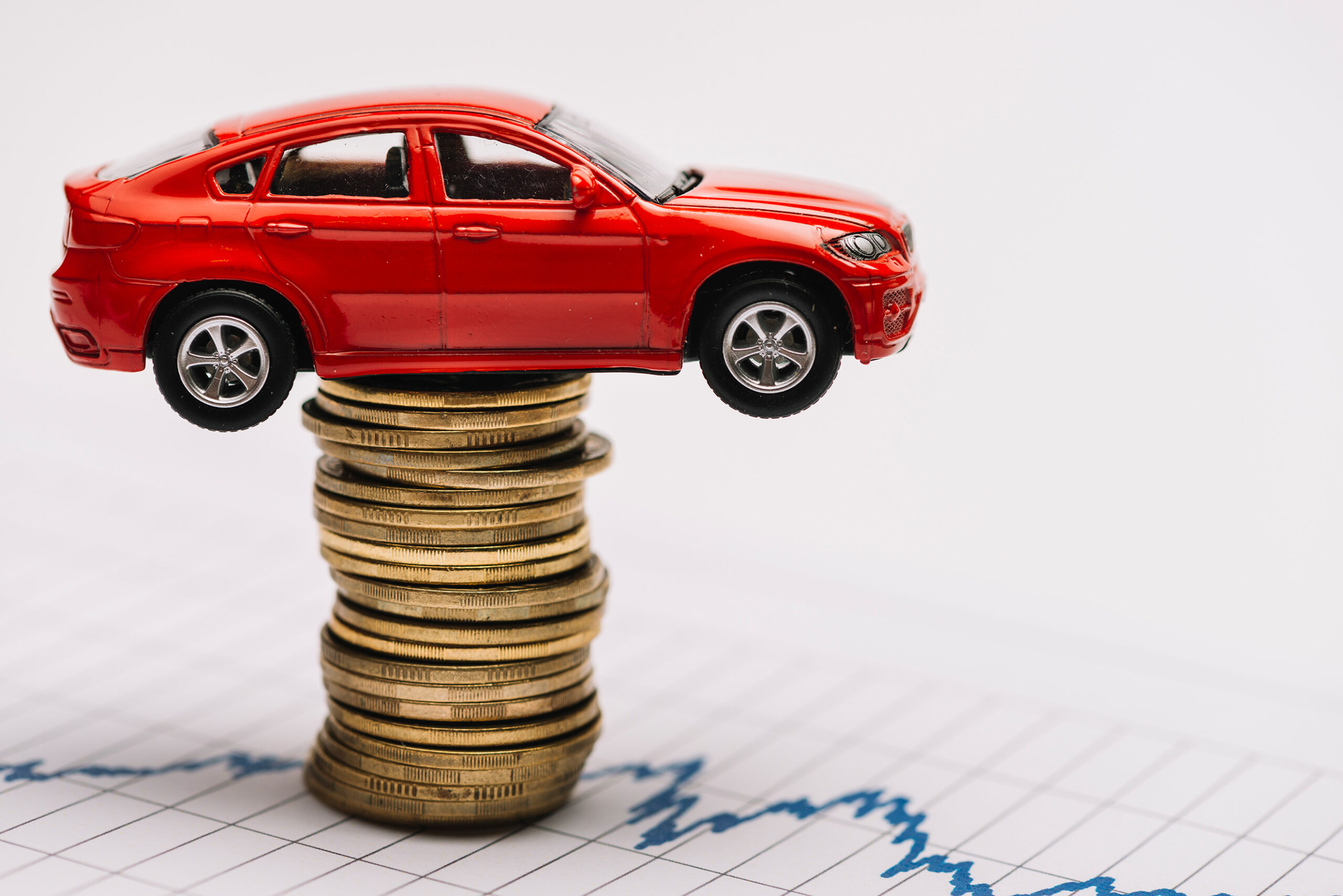

There should have been technological transfer in the first place. Not a single government did anything to address this issue. To this very day, the big three are only just assembling cars with parts imported from Japan. Then these Pakistani assemblers boast about job creation & contribution to national exchequer…. Like what’s the point, Millions of dollars flow every year to Japan in import bills & revenues so that cancels out pretty much everything they boast. The final products of these assemblers lack severely in quality, Honda City, a car with a Rs. 3 Million price tag hasn’t got any airbags. I rest my case.
Very informative article to read…..
I think we need consistant policies so that companies like United Motors develop a brand trust within masses because its the only solution to break the monoploy of big 3 automanufactures. Plus steel mill should be revived as soon aa possible. We are also lacking in the field of metallurgy. We have huge metal reserves but need technology to extract & process them….
I personally know many talented ppl who are willing to work in the field of metal extraction but due to uncertanity in govt. policies & stupid NAB laws they are afraid to work in any govt project.
yeah but the jobs of 200k auto sector workers are secure. the decision was made to favour those jobs over the interest of consumers. a side effect is higher oil imports because locally assembled cars are less fuel efficient but I support its easier to get waivers and favours from middle eastern brotherly countries than car manufacturing countries in east asia and europe.
*suppose
Pakistan use to manufacture cars in 60s, 70s & early 80’s (Naya Daur Motors, Sindh Engg., Proficient, Transmobile are few examples), than comes corruption & politics. Govt. is hand-in-gloves with big auto manufacturers in compromising quality & increasing the price after 1992, when Indus Motors started production & nasty game started. Our current govt. is most business unfriendly & increased taxes / duties to unprecendented levels, thus destroying the whatever market existed in early 2018. Than comes EV policy (Nov ’19), tons of incentives were tabled, but completely failed to implement (SRO).
I think Pakistan has a golden opportunity to jump on to the band wagon of EVs, with R&D on battery technology (the heart of EV), with local design & manufacturing in collobration with China (World leader in EVs), best example is Turkey’s TOGG SUV.
true
The big 3 are a Mafia and root cause of every evil in car industry.
The bark (like pigs) about imported used cars but can never match the quality of used car.
A five year old used car from japan is a lot better in quality than brand new car from big three. Why? These scoundrals ca not even produce a same quality car from same parts imported from japan?
They intentionally reduce quality to increase profit margins. They repeatedly threaten, blackmail, intimidate, bribe every govt. agency who tries to reduce their monoply. Look at what they have done to EV Policy. They will never let any policy of public interest be implemented in pak.
The cost of production suzuki mehran may not be more than Rs 50,000. Its the insane amount of profit that they charge.
Govt must allow import of used cars. the cars from big 3 are not pakistani manufactured either.
Its high time, public should completely boycott big 3. as they are too strong for any govt to make policies against them. They need to go complete bank rupt and Die before anything good can happen im automotive sector.
Buy used cars only for your transportation needs.
Control your show off urges for new cars.
Do NOT lease new cars from banks.(its almost always haram).
Exactly what I want to say.
Bravo What an Aggressive Bold and Factual Analysis of *Big 3 MAFIAS**.
But as Corruption and Haramkhori had Destroyed the Pakistani Governments Past and Present, very less chances in near future to *BREAK THE MAFIA CARTELS **.
Exactly. It feels so bad paying millions for junkies.
Comments are more interesting and reality based than the article it self!! Good to know people are more aware in this respect than what shown in mainstream media!!
It is not the taxes behind the high prices of cars in pakistan rather it is the hunger for more profits by car assemblers and zero check of govt. On the safety and quality of the vehicles and zero botheration about consumer’s rights. In pakistan there is a unholy cartel of these three assemblers suzuki, honda and toyota.This article is just a jibe in favour of assemblers.
Pakistan’s big 3 car assemblers are first and last profiteers. They are like vultures ready to pounce upon the hapless consumers even when the dollar appreciates a couple of rupees. But no downward revision of their car prices even as dollar dips and rupee is steady once again.
Where is the EDB ? It has been unable to reign them in to ensure required level of Deletion. The Big 3 will keep their plants underworked and observe NPDs due to reduce demand They need to understand that Pak consumers’ capacity to pay is not unlimited. If car gets beyond their reach, they will not buy it. So theses companies are digging their own graves; increase prices even when there are no buyers.
These companies are bound to go under if their owners do not learn sooner.
More of verbosity in this long n lengthy paper than the figuristic meat, a time wasting effort
Pakistan pakistan…. very disappointed…..They need to learn from Hitler He started with Volkswagen (awami gari) and now German car are state of the art…in Germany who is driving what nobody care government and car company make it sure everybody can buy any car …automotive industry is one of economy pillar…ok German like s their car and pets more then kids…pakistani need to change their vision too…. in Germany car are mean of transportation and in pakistan social status….as long this is not changed we wount go forward…
last year bro has bought same car as he has in holland bmwx5 2019 new o km for almost 2.5 x the price what he had bought in holland .the price of this x5 is €160000 in holland pffff yaar so expensive taxes in pk have to go down to gett the automarket booming.i am also considering to buy a car in pk my eyes are on a porsche cayenne turbo this car cost in holland €260000 2020 model,yaar if i ad 2.5 x more on the price i can buy 2 cayenne in holland for the same price as in pk.
please mr imran khan down the taxes on import to get your auto market expanding in a shorttime. just do it
Comment: A good site
The moment I read the top 1/3rd of the article I knew it was a paid article by the mafia.
Anyone who wants the factual and ground reality, read the comment.
The above stated comments rightly bespeak the plight of Pakistani Car industry, which is merely fleecing the consumers. If Govt allow freely import of cars without ifs and buts, consumers not only be benefitted price wise, increase their work efficiency and will give revenue to the govt many times more. On world standards, virtually Pakistani car industry do not exist,except filing the coffers of certain quarters. In UK a good running car is available in 1000 pounds, would look like new one. but import to Pakistan is banned.What a cruel Joke.
Glad to see Mr. Sohail Bashir Rana participate in the article. As you know Pakistan has no concept of Mobility todate. Mobility means Car, aircon., interiors, full recline seats, powered window glass is the defacto standard by PAMA. A Suzuki FX for longtime produced without lamination of the Wind-screen under PAMA license. Braking, brakes, technology, bumpers, power windows, hi-fi music, all are hybrid local/import from China for local integration.
Countless accidents, non compliance to the UN/WHO Road Safety Commission not adressed by PAMA, or the Traffic Dept., make a Pakistani car for the naive buyer of car.
The Mobility should have been addressed yesterday in Pakistan for Coasters of 3/4 bench seats, with seat belt, effective braking technology.
Today the car technology of engine technology by Sensors, Radars, NiMh batteries, solar panel on the roof running the aircon., which makes it impossible for an accident/crash, collision, by driver human errors, sleep, drowsy, or un-conscious there will be no accident.
China today is firmly geared to launch the Fully Automated car from China which will accepted driver instructions to configure the Co-Ordinates of the location. The radar sensors are sensing the situation for KM of distance and sensors will instantly apply brakes. They are now made in China. They will be very very cheap.
Suggest to please consider a total/compete over view consideration of Auto Assembly in Pakistan. It will be very costly, unsafe, un-reliable, the volumes are very small. No international buyer for a Pakistani car. However if you consider to initiate a pilot from Google technology, electronics, sensors, Radars, which are all freely available from US, Germany, Japan, and China at a cheap price, and 100% prone from Road Accident. People will throw their cars as they do not know the cars are unsafe for humans to drive. Shortly you will notice the Driverless Fully Automated car on Karachi Streets to a blessing from God for not a death trap. Taxis has appeared in the US and Europe. After our honorable patron Mr. Ali Habib Indus Motor he pioneered being the first. I suggest to please bring the local production limited to shell/body of fiber/metal, rest should be fully imported from China for Ambulance, funeral Vans, for School Vans. We need commuters, for mass Mobility. I will also arrange your visit to international visit to EU for an orientation of technology where it is and how we can license, and simplify our lives without any hassle/accidents. Blessings
awam say pochay bagair import band kar di tumharay baaap k ha pakistan galioun k laiq ho tum aur tamam haqomatain lanat asay system par jo roti kapra makan say agay na bhar saka
Why would you stop import from overseas? I think the best thing ever happened to car industry in Pakistan is ‘import of these cars from Japan or other countries’. In ko nath dali otherwise shayed aj Honda Civic 1 Caroor ke ho jay…Mn sirf yeh janana chahta hon ke loog ehtajaj kiun nhi kertay. Stop buying these cars from local assemblers. Push them to reduce the price and cut all thsee middlemen bakwas so that aawam can get a car, Khuda ke wastay yar bus ker doo, kitna khaoo gaye, marna nhi tum logo nay!!!
Only if really-connected, matured pressure groups prop up, which everyone follows, months-long boycott will make these mafias kneel. But status-quo-serving elite class, will not let it happen.
Right said, in Pakistan, vehicles are a mean to show-off even if the fuel is borrowed and so is the car.
PRESSURE GROUPS + people complying + no expectations from Government whatsoever.
If missiles can be locally made, why not cars..? #UnitedCars must have a very powerful baseline social media campaign to get it accepted. Trigger the loyalty. That’s the key.
I am from the UK and am planning to move to Pak soon. I had planned to buy a brand new Suzuki Swift when I arrived, used prices are not significantly less so I figured better to buy new. However, after reading the comments here I have decided against further enriching the three monopolists (Toyota/Honda/Suzuki) and will buy a used model which is several years old.
I love my country and I wish it had a reputable local make of car but there is little chance of that happening soon. In the UK a very good used car can be purchased for about £1000 (2lac rupees). The import model needs to change to allow more cars into Pakistan…..but the big three will NOT allow it. I hope the situation changes soon.
Finally, we should all be mindful of the fact that increasing uptake of cars will result in higher pollution, more road deaths and more road building Ultimately cars will end up making the country less pleasant.
Absolutely no quality control in Pakistan.
A few years ago we bought a brand new suzuki carry and on the way home from the showroom the passenger side door handle jammed and would not open the door.
Buy a 10 years old imported car from Japan or Europe and you can be sure the build quality will be better then a brand new one of Pakistani origin.
Nice review about Why exactly are cars so expensive in Pakistan, i musy say that the author of the article have enough knowledge about rent a car in pakistan, and want to recommend car rental services by GRS Enterprises.
Nice one Article Thanks for Sharing
A five year used japanese car is way better than new toyota or honda of Pakistan.
Its wonderful to hear so many people speak out which is correct and rightly said that cars in are much cheaper in other countries than in Pakistan. But one very important factor that the government should realize is that imported cars should be allowed with minimal only 5% tax rate as is done in Dubai, regardless of the local manufactures. Only then with the real competition begin. Vehicles from Renault and Peugeot are really low on fuel consumption and eco friendly. Government officials seek bribes in the import of Japanese used cars especially for government departments and this should stop. But at the same time the need for providing accessible transportation like trains and trams need to be on the agenda of the government. So that more and more people can rely on cheap public transport and avoid even purchasing cars. Rather than the green lines and BRT bus transports introduced by the government they should focus more on introducing trains like that in many countries of the world. I hope there is someone out there listening with truly a wish to do something for its people without the concern of point scoring in politics or for other personal benfits.
I like the valuable information you provide in your articles Thanks for sharing
Comments are closed.